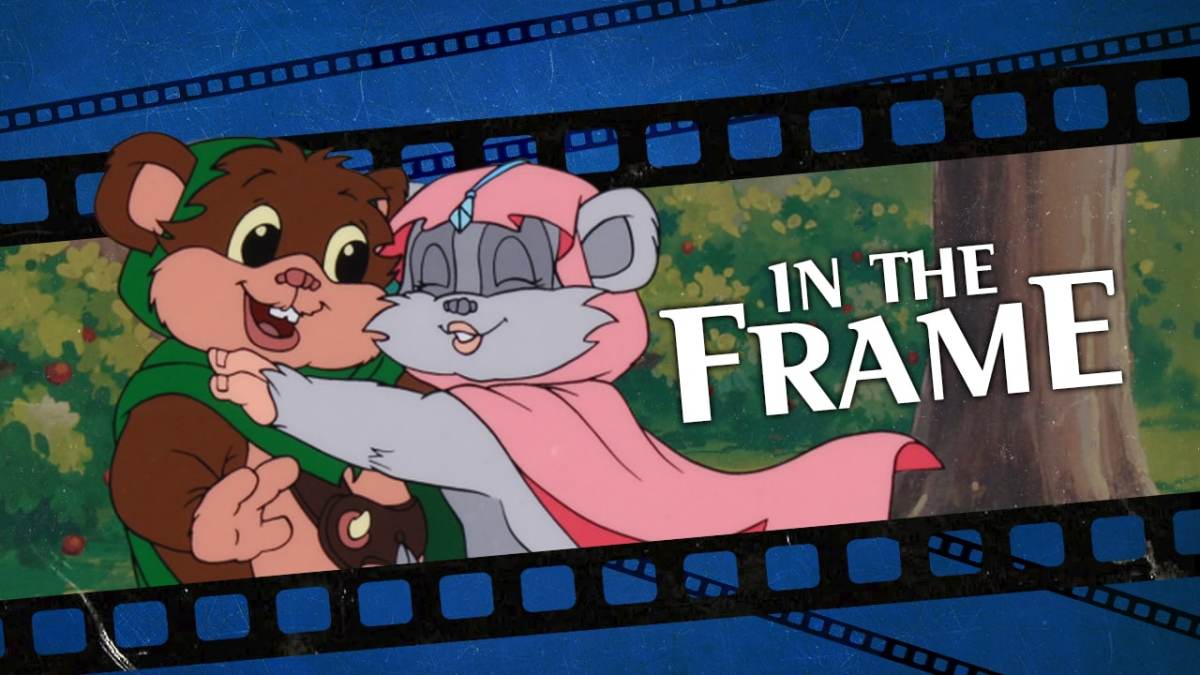Everybody knows the oft-cited reasons that the Ewoks suck. These have practically become an accepted part of Star Wars lore.
Part of the hatred directed towards the Ewoks is undoubtedly because of the alternative, the original planned climax of Return of the Jedi that would have featured Wookiees instead of Ewoks. Some of it might be down to how unashamedly toyetic the Ewoks are, signifying how – in the words of Star Wars producer Gary Kurtz – “the toy business came to drive the [Lucasfilm] empire.”
It might also be that the Ewoks speak to Lucas’ understanding of the Star Wars saga as a story “for children.” The Ewoks are unashamedly for younger audience members, even launching their own spin-off films and animated series. Kids who were 10 years old when the original Star Wars came out were 16 when Return of the Jedi was released, teens primed to reject “childish” things.
This hatred of the Ewoks has permeated Star Wars. The “Endor Holocaust” theory speculates that the destruction of the second Death Star so close to the moon would have wiped out the Ewoks. The fan-service-heavy Rise of Skywalker insists that the Death Star crashed on a different moon, so Rey and Ren do not encounter any Ewoks. Their sole appearance is relegated to the closing montage.
However, what if the Ewoks weren’t the worst thing about Return of the Jedi? What if the Ewoks were not only one of the best things about the film, but among the greatest articulations of the franchise’s core themes? The Ewoks are not a distraction or a disappointment. They are an essential part of Star Wars and a key expression of what the franchise is and what makes it so special.
George Lucas originally envisaged Star Wars as his Vietnam movie. Lucas had been attached as director on Apocalypse Now when the project was announced in October 1969. Lucas had even planned to shoot the movie in Vietnam while the war raged, guerrilla-style. Understandably, no studio would support such a project, so Apocalypse Now lingered in development hell.

Apocalypse Now would eventually be brought to the screen by director Francis Ford Coppola, who began shooting it in 1976, a year before Star Wars was released. Lucas saw his own Star Wars and American Graffiti along with Coppola’s Apocalypse Now as a thematic trilogy exploring the war. Years later, Lucas would muse of Star Wars, “It was really about the Vietnam War.”
It’s possible to contextualize Star Wars as part of the wave of films in the late ’70s and into the ’80s that meditated on the Vietnam War by casting its all-American heroes as guerrilla insurgents, films like First Blood, Red Dawn, Predator, even Die Hard. In 1973, Lucas himself described Star Wars as the story of “a large technological empire going after a small group of freedom fighters.”
These themes got brushed aside with the release of The Empire Strikes Back in 1980. It is difficult to read The Empire Strikes Back as a commentary on Vietnam. Instead, it touches on a broader generational crisis, with both Luke Skywalker and Lando Calrissian confronted by the question of whether to drop out or sell out. Darth Vader even wants to bring his son into the family business.
Return of the Jedi marks a clear return to the aesthetics of the original Star Wars, rejecting a lot of the more nuanced elements of The Empire Strikes Back. The Empire even recycles their evil plan from the first film, building a new and improved (and larger) Death Star. Once again, the film builds to a gigantic space battle around that Death Star.
However, the Ewoks make Return of the Jedi an effective return to the insurgent themes of the original Star Wars. It is entirely possible to watch Star Wars and miss the Vietnam subtext underpinning the film. The Rebel Alliance might not be as technologically advanced as the Empire, but they have much greater resources than the real-life Viet Cong. The Ewoks are more explicit.

The Ewoks hew much closer to how America has traditionally seen the Viet Cong. They are an indigenous population responding to an imperial power encroaching on their home. The use of traps and snares by the Ewoks recalls the portrayal of jungle warfare in Vietnam. Lucas is on record about wanting to create the Ewoks as a fuzzy, furry version of the Viet Cong.
This is a radical and subversive notion. Return of the Jedi took one of America’s most hated enemies and turned them into a mass-market commodity. At the same time that more adult-oriented pop culture was mediating the legacy of the Vietnam War in films like Uncommon Valor or The Twilight Zone, Lucas was selling a teddy bear version of the Viet Cong to an entire generation of youngsters.
This approach simply would not work with Wookiees. Wookiees are gigantic and inherently threatening. They are conventionally “badass” in the same way that Darth Vader tearing through rebel soldiers in Rogue One is conventionally “badass.” There’s no surprise there, no contradiction, no juxtaposition. Ewoks look cuddly and cute, so making them stand-ins for the Viet Cong is daring.
This gets at one of the core themes of the larger Star Wars franchise, the idea of indigenous populations resisting foreign aggression – there is a reason that the baddies are known as “the Empire.” This plays through the entire saga, such as when the long-promised Wookiee battle is realized in Revenge of the Sith through to the slave trooper rebellion in The Rise of Skywalker.
This theme is important to Lucas. He has returned to it repeatedly. The conflict between the Gungans and the Trade Federation at the climax of The Phantom Menace is just a restatement of the same core idea, filtered through the prism of toyetic child-friendly characters. The Ewoks work better than the Gungans because they are alien enough to avoid appearing as racist caricatures.

The Ewoks shrewdly allow Lucas to render potentially controversial ideas in seemingly inoffensive packaging. There’s an appealing dissonance to the Ewoks, a sense in which these superficially silly characters are decidedly more complex than their appearance might suggest. It is too much to describe them as “edgy,” but they are more pointed than they first appear.
There is something slightly sinister about these adorable alien teddy bears. They are introduced trying to eat the primary cast of the movie, only for C-3PO to convince them otherwise. The closing sequences of Return of the Jedi showcase the empty stormtrooper helmets that the Ewoks have claimed as trophies, but there are no stormtroopers to be seen. There is, however, a gigantic feast.
This gets at the way in which Return of the Jedi lets the Ewoks be weird. One of the most surreal sequences in the Star Wars franchise is the sequence of an Ewok realizing that his friend is dead. It is a ridiculous beat on paper, but Return of the Jedi plays it straight. The music soars. The Ewok cries. The film slows down to be emotionally present in the scene. It’s goofy, it’s absurd, it’s kinda moving.
Lucas was never afraid to indulge his more gonzo impulses. Even in Revenge of the Sith, Lucas makes a point to crosscut the emotional and dramatic confrontation between Obi-Wan and Anakin with the goofier showdown between Yoda and Palpatine. It’s a heady cocktail, combining operatic sweep with campy spectacle. It’s amazing to see something so dissonant in a big-budget blockbuster.
One of Star Wars’ great “what ifs” centers around the possibility of David Lynch directing Return of the Jedi. While that could never have actually happened, focusing on Lynch downplays the way in which Lucas was always willing to lean into the weirdness of Star Wars. Lucas’ Wookiee sitcom framing device of the Star Wars Holiday Special resembles nothing so much as Lynch’s Rabbits.
There is something slightly disingenuous in the arguments from certain segments of fandom that Lucas should have been allowed to develop his sequel trilogy, particularly given the overblown reaction to the prequels that he directed. Lucas himself has readily conceded that “a lot of fans would have hated” his plans for the sequel trilogy.
Still, there is a sense that Star Wars lost something when the property was taken away from Lucas. Disney has largely filed down the rougher edges of the larger franchise, steered clear of the weirdness that infused the series. The company still includes toyetic characters like BB-8 or Baby Yoda, but characters like Babu Frik are nowhere near as strange and contradictory as the Ewoks.
The Ewoks are silly. They are also radical. The intersection of those two elements makes them brilliant.





